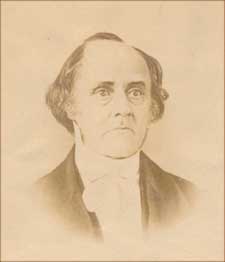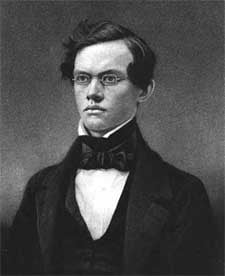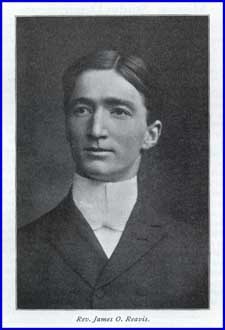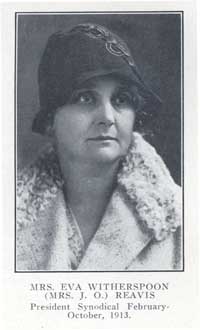In troublesome times, draw ever nearer to your Lord and King, for His promise will, in due time, be fulfilled.
Excerpted from The American National Preacher, Sermon 205, preached at Baltimore, on this day, September 9th, in 1835, at the Annual Meeting of the American Board of Commissioners for Foreign Missions, by the Rev. Dr. Samuel Miller, D.D., Professor in the Theological Seminary, Princeton, New Jersey.
THE EARTH FILLED WITH THE GLORY OF THE LORD.
[click here for a full-length pdf version of this sermon]
Numbers xiv. 20, 21-And the Lord said, I have pardoned according to thy word: but as truly
as I live, all the earth shall be filled with the glory of the Lord.
THE practice of confirming a declaration with an oath, is of very early origin. And although the multiplication of oaths is a great evil, and the act of taking or administering them with lightness, an aggravated sin ; yet, they are, undoubtedly, in ‘great error who maintain that all swearing, even on the most solemn occasions, and on the call of judicial officers, is unlawful. An oath for confirmation, says an inspired Apostle, is an end of all strife. Accordingly, in the sacred history, we find many examples of holy men, on various occasions, employing this form of asseveration. But, what is much more decisive still, we find the High and Holy One himself repeatedly adopting it to confirm both s promises and his threatenings. Thus we read, in the Epistle to the Hebrews, that, there being no greater, Jehovah sware by himself; and again, in the same Epistle, it is said, that God willing more abundantly-to show to the heirs of promise the immutability of his counsel, confirmed it with an oath, that by two immu-table things, in which it was impossible for God to lie, they might have strong consolation who have fled for refuge to lay hold on the hope set before us. And in the passage before us, the Lord said, As I live, all the earth shall be filled with the glory of the Lord.
These words were spoken on a very distressing, and, to the eye of man, a very discouraging occasion. When the twelve men who had been sent from the wilderness of Paran to spy out the land of promise, brought back their report, the mass of the people were almost overwhelmed with alarm and discouragement. Nay, overcome by apprehension, and infatuated with a spirit of unbelief and rebellion, they proposed to make choice of another leader, and return back to Egypt. With this ungrateful and daring revolt the Lord was greatly displeased, and threatened to give them up to his destroying judgments, and to disinherit them for ever. Moses, however, interceded for the people in a most touching strain of importunate prayer and he prevailed. The Lord said, I have pardoned them according to thy word. But as truly as I live, the earth shall be filled with the glory of the Lord. As if he had said—”Unbelieving and rebellious as this people now appear, and utterly desperate as their prospects may seem;—neither my plans nor my promises, in regard to them or the world, shall be frustrated. My cause shall finally triumph over all the infatuation and rebellion of man. The whole earth shall, in due time, be filled with my glory.”
There are three things in the passage before us which demand our notice—THE IMPORT OF THE PROMISE WHICH IT CONTAINS;—THE REASONS WHICH WE HAVE FOR BELIEVING THAT THIS PROMISE WILL, IN DUE TIME, BE REALIZED;—AND THE DUTY DEVOLVING ON US IN RELATION TO THE PROMISE
I. Let us attend to THE IMPORT OF THE PROMISE BEFORE US. This import, expressed with so much solemnity of asseveration, is large and precious. As I live, saith the Lord, all the earth shall be filled with the glory of the Lord.
Glory is the manifestation of excellence. The glory of God is that display of his most blessed character and will, which opens the way for his intelligent creatures to know, to love, and to obey him. This glory is exhibited in various ways. It shines in all the works of creation. All the works of God, we are told, praise him. The heavens declare his glory, and the firmament showeth his handy work. Day unto day uttereth speech, and night unto night showeth knowledge. There is no speech nor language where their voice is not heard. Their line is gone out through all the earth, and their words to the end of the world. Again, the glory of God is manifested by the works of his providence. Here his wisdom, his power, and his benevolence, gloriously shine. The Lord, we are told, is known—that is, is made known,—by the judgments which he executeth. But, above all, is the glory of God displayed in the work of REDEMPTION; in that great plan of love and mercy by a Redeemer, which was first revealed to the parents of our race immediately after the fall; which was more and more unfolded in the ceremonial economy; and which reached its meridian brightness, when the Saviour, the blessed “Sun of Righteousness” rose upon a dark world. In this wonderful plan of salvation, the glory of God shines with its brightest lustre. Here all his perfections unite and harmonize, and shine with transcendant glory. Now, when the Gospel, which proclaims this plan of mercy, shall be preached and received throughout the world; when every kindred, and people, and nation and tongue shall not only be instructed in its sublime doctrines, but also brought under its benign and sanctifying power; then, with emphatic propriety, may it be said that “the earth is filled with the glory of the Lord.” As the highest glory, of which an individual creature is capable, is to bear the image of his Maker; so the highest glory of which our world at large is capable, is to be filled with the holy and benevolent Spirit of Him who is the brightness of the Father’s glory, and the express image of his person;—is to have the knowledge and love of the Saviour reigning over all the population of our globe, from the rising of the sun even unto the going down of the same.
It is this universal prevalence of the true religion; that religion which alone can enlighten, sanctify and save; that religion which imparts the highest physical and moral glory, wherever it reigns, and in proportion as it reigns;—it is the universal prevalence of this glory which is promised in our text. When this holy and benevolent religion shall fill the world, then shall be brought to pass the promise which is here recorded. Yes, when the benign power of the Gospel, and all the graces and virtues which it inspires, shall reign over all the family of man; when the highest intellectual and moral culture shall be every where enjoyed; when the voice of prayer and praise shall be heard in every tabernacle; when the Sabbath shall be universally kept holy to God; when the Christian law of marriage, that noblest and most precious bond of social unity and happiness, shall be universally and sacredly obeyed; when the temperance reformation, without any unscriptural extremes, or fanatical perversions, shall pervade the world: when “wars shall cease to the ends of the earth;” when fraud and violence shall be banished from the abodes of men; when the voice of profaneness shall no more pollute the lips or the ears of creatures claiming to be rational; when tyranny and oppression, in every form, shall come to an end; when sectarian feuds and jealousies shall be unknown, save only in the pages of history; when all heresy and error shall give place to the power of truth, and all vice and profligacy to the reign of Christian purity; when the Mosque and the Pagoda shall be transformed into temples of the Christian’s God: when the habitations of savage cruelty shall become the, abodes of holiness and peace; when the activity of a greatly extended commerce shall be directed chiefly to the intellectual and moral culture of society; when justice, order, industry, brotherly kindness, and charity shall universally reign;—in a word, when the church of God, with all its choicest influences, shall fill the earth;—then shall the promise before us be gloriously realized. This will be emphatically, “the glory of the Lord;”—the glory of his power; the glory of his holiness; the glory of his love. It will be, in its measure, the same glory which forms the blessedness of the heavenly world; the same glory in which those whose robes have been washed in the blood of the Lamb, walk in white raiment before the throne of God. O how glorious shall this fallen world be, when all the nations which compose it shall be “just, fearing God;” when those who are nominally “the people of God, shall be all righteous;” when every family shall be the abode of purity, order, and love; when every individual shall be a “temple of the Holy Ghost;” and when, from pole to pole, the song of jubilee shall be heard—Blessing, and honor, and glory, and power be unto Him who sitteth on the throne, and to the Lamb for ever and ever! Alleluia! for the Lord God Omnipotent reigneth! Such appears to be the import of the promise before us.—Let us next inquire,
II. WHAT REASON HAVE WE FOR BELIEVING THAT THESE SCENES OF GLORY WILL ONE DAY BE REALIZED?
This is, to the Christian’s heart, a most interesting inquiry. Let us ponder it with a seriousness corresponding to its unspeakable importance.
And here it is obvious to remark, that there will be no need of miracles (in the ordinary sense of that word) to bring about the accomplishment of the promise before us. Only suppose the genuine power of the Gospel, which we see to reign in thousands of individuals and families now—actually to reign in all hearts, and to pervade the world,—and the work is done. But how can we hope for this? I answer-
1. First of all, and above all, our hope is founded on JEHOVAH’S FAITHFUL AND UNERRING PROMISE.
2. But further, our confidence that the religion of Christ will, one day, fill the whole earth with its glory, is confirmed by the consideration, that THIS RELIGION IS, IN ITS NATURE, ADAPTED ABOVE ALL OTHERS TO BE A UNIVERSAL RELIGION.
3. I have only to add, under this head, THAT THE PRESENT ASPECT OF THE WORLD FURNISHES MUCH REASON TO HOPE THAT THE ACCOMPLISHMENT OF THIS PROMISE IS DRAWING NIGH.
It remains that we
III. Inquire, WHAT IS OUR PRESENT DUTY IN RELATION TO THE PROMISE BEFORE US? And here,
1. Undoubtedly, our first duty is to believe the promise.
2. Another duty incumbent upon us in relation to this promise, is to labor and pray without ceasing for its accomplishment.
3. A third duty, in relation to the promise in our text, is, that, in laboring for the spread of the Gospel, no adverse occurrence, however painful, ought ever to discourage us, or at all to weaken either our confidence, or our efforts.
4. A further duty, in reference to the promise before us, is, that we pray without ceasing for the power of the Holy Spirit, to render all the means which are employed for its accomplishment, effectual.
5. Finally; if so great a work as evangelizing the whole world, is promised, and is certainly to be accomplished, then our plans and efforts for promoting this object ought to bear a corresponding character: that is, they ought to be large, liberal, and ever expanding. We ought to consider it as our duty to devote to this object our utmost resources, and to engage the co-operation of all, over whom we can exert an influence.
The promise of God to his people is, Open thy mouth wide, and I will fill it. . . We scarcely ever lift our eyes to the real grandeur and claims of the enterprise in which we profess to be engaged. We are too apt to be satisfied with small and occasional contributions of service to this greatest of all causes instead of devoting to it hearts truly enlarged; instead of desiring great things; expecting great things; praying for great things; and nurturing in our spirits that holy elevation of sentiment and affection, which embraces in its desires and prayers the entire kingdom of God; and which can be satisfied with nothing short of the “whole earth being filled with the glory of the Lord.”
But how ought we to be still more deeply humbled and animated, when we call to mind what our blessed Saviour has done for us! I have sometimes heard professing Christians talk of doing and giving as much toward the spread of the glorious Gospel, “as they conveniently could.” Surely this is wonderful language for the professed followers of a crucified Redeemer! Did our blessed Master do no more for us than he “conveniently could?” Did He not give his life for our redemption? Did He not, in offering up himself a sacrifice, that we might not die, yield himself to sufferings unparalleled and indescribable? Shall not every one, then, who calls himself by the name of Christ, make the language of Paul, in all its force and tenderness, his own? — For the love of Christ constraineth us; because we thus judge, that if one died far all, then were all dead; and that he died for all, that they which live, should not henceforth live unto themselves, but unto him which died for them and rose again.
Lift up your eyes, Christian brethren, on the unnumbered millions of our globe; sunk in ignorance, pollution and misery! Think of their condition: a condition in which you must have been at this hour, had it not been for the wonderful grace of God. Contrast with that condition your own mercies and privileges, and then ask, whether you ought not to feel for those who, are thus miserable, and try to help them? Christians! can you enjoy your Bibles, your Sabbaths, your sanctuaries, your sacramental tables, and all your precious privileges and hopes alone? Can you enjoy these hallowed scenes, and heavenly gifts, and know their value, and yet slumber in ignoble indolence over the moral desolations of those who are perishing for lack, of them? Can you calmly sit by, and see million after million of treasure cheerfully expended for amusement, luxury and sin; and only a few stinted thousands devoted to the greatest, best work of enlightening and saving the world? O whither has the spirit of the Bible fled? May He who gave the Bible, and the promise before us, restore it in his time!
Let us, then, with one accord, rouse ourselves, and endeavor to rouse others to new zeal, and larger enterprise in spreading the knowledge and glory of the Lord. Every heart, every tongue, and every hand that can be stirred up to engage in this great work, from infancy to old age, is needed. And remember that the more thoroughly any of the children of men can be excited and consecrated to this work—the richer the benefit they gain for themselves. Christian brother! Christian sister! whoever you are, in this large assembly!—you have each, respectively, a duty to perform in reference to this mighty work. It is incumbent upon you to do all in your power for sending the light of life to the benighted and the perishing. Nay, upon every human being, whether in the church, or out of it, there lies an obligation to aid, as far as God gives the opportunity, in sending to “every creature” that gospel which is “the power of God unto salvation to every one that believeth.” We invite you all, my hearers, not merely to the duty, but to the precious privilege, of co-operating in this holy and blessed enterprise. And we can venture to assure you, that, if the day should ever come, in which your hearts shall be thoroughly imbued with the spirit of missions, it will be the happiest period of your lives; as well as the pledge and the dawn of that wide-spread glory, which our text proclaims as certain and approaching. We can point you to no higher honor, no richer pleasure on this side of heaven, than that which is found in enlightened, zealous, active, absorbing zeal for spreading the holy, life-giving religion of Jesus Christ from the rising to the setting sun.
For the promotion of this work, my friends, the “American Board of Commissioners for Foreign Missions” has convened in this place. Our hope in coming together is, that we maybe enabled, by the grace of God, to excite each other to more lively sensibility, and more ardent zeal, in the great Missionary cause which we have associated to carry on; and also that we may be instrumental in adding something to the missionary spirit which we hope already exists in the enlightened and favored population of this city. We are now celebrating the twenty-sixth anniversary of our Board: and, instead of being weary of our work, we can sincerely declare, that in looking back on our past course, our only regret is, that we have not labored with far more diligence and sanctified ardor in the cause of the world’s conversion; that our plans have not been more enlarged; and that we have not prayed more, and done more in this greatest of all causes in which Christians can engage. Yes, brethren, beloved of the Lord, we come to mingle our vows with yours; to proclaim with deeper conviction than ever, that we consider the cause of missions as the most precious cause in the world; and to bind ourselves by new resolutions, that we will, by the help of God, with greater zeal than heretofore, “spend and be spent” in this most blessed service. What more worthy object can we seek than contributing to fill the earth with the glory of the Lord? Brethren, pray for us, that we may be faithful to our sacred trust. Pray for yourselves, that you may not be found wanting in the payment of that mighty debt, you owe to your Divine Master, and to a perishing world. And let us all, more and more, aspire to the honor of being “workers together with God” in hastening the triumphs of Immanuel’s universal reign. Come, Lord Jesus, come quickly; and let the whole earth be filled with thy glory! Amen! and Amen!




